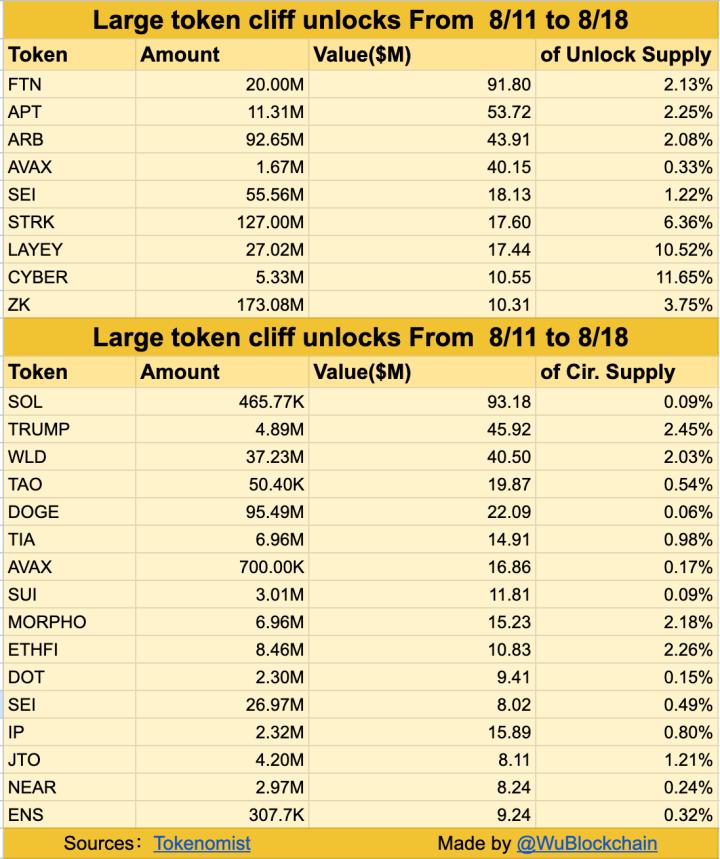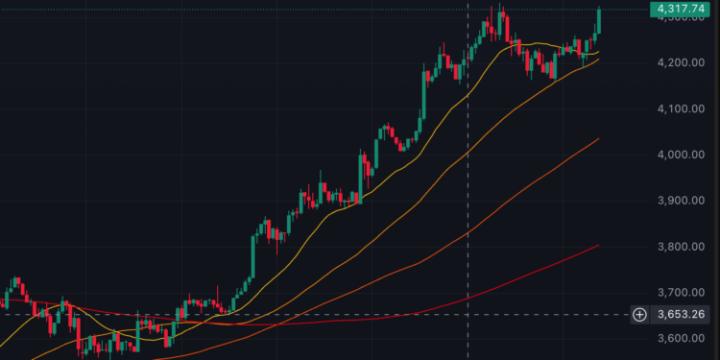Author: Jeffrey Carter, Translated by: Shaw, Jinse Finance
Trump signed an executive order allowing people to invest 401(k) account funds in alternative assets. This can be direct investment or investing in funds that invest in these alternative assets.
Previously, you had to have a special self-managed retirement account to do this and meet the IRS-specified qualification conditions for investing in such assets.
I support capital democratization. I firmly believe people should be able to freely dispose of the money they earn. When crowdfunding emerged, people thought I wouldn't support it because it would compete with the angel investment group I founded. But I fully support it.
To be honest, simply investing in S&P 500 index funds has been quite good overall since the end of the Great Depression. This is the best investment option. Most of my assets are invested in index funds. $100 invested in 1940 is worth nearly $900,000 today.
Over the years, I've heard advertisements promoting gold and silver on many news channels and radio shows. Stay away from them. They're useless.
That said, we should strengthen regulations on transparency and information disclosure so people can invest cautiously. Often, funds are evasive about their returns. Funds also tend to exaggerate investment returns and never reduce them. They also try to conceal losses.
Some fund managers are not afraid of complete performance transparency. But I find such people are rare.
Perhaps a standardized audit process should be established that funds must pass to obtain funds from 401(k) plans?
Some funds do not do well in reporting ongoing performance, invested companies, or assets. In our fund, we report all good, bad, and ugly things honestly. We even write a company's valuation as zero, although it's still operating. We are almost certain we won't get the money back, so why hide it? Yes, this affects our performance, but it's no big deal.
Some historically significant companies will be born in the next decade. I believe the general public should be able to participate.
Companies may encounter many twists during their development. Some are unexpected, some are anticipated. For instance, in our venture capital fund, we've always believed our equity dilution rate would be between 60% and 70% from the first investment. This helps us conduct overall statistical analysis and revenue predictions.
If you want to invest in private equity or real estate, you'll likely have to go through funds. You need far too much capital. Private equity funds are often billions of dollars. If you don't belong to such an entity, you can't access investment opportunities. It's like bringing a slingshot to a gunfight.
However, fund performance entirely depends on the managers running them. Bad managers create bad funds, and even excellent managers can make mistakes or have terrible investments.
Hedge funds are another matter. I've never made money in hedge funds.
Full disclosure: I have an investment in MLTech.ai. ML will match funding pools with algorithmic strategies in the cryptocurrency market. The return after fees is quite good. The minimum investment is $100,000, worth a look. They review fund managers and strategies and continuously review to ensure compliance. They manage millions in assets and are a genuine company.
Angel investing and venture capital are similar but different. If you want to do venture capital, the fund path might be the best choice.
I don't know any outstanding bloggers in real estate, cryptocurrency, or private equity. Usually, these bloggers are just speaking for their own interests or hyping something. It's no different from horse racing guides or low-stock recommenders. I find even some well-known venture capital firms are no better.
Cryptocurrency is an entirely new field, very different. I thought I understood it and invested some money, only to find I didn't understand it at all. I have one company that might do something, but my investment in Helium exploded like a hydrogen bomb. Bitcoin or Ethereum are about the same, perhaps Solana too. Instead of joining a fund and paying fees, directly buy a certain proportion of real cryptocurrency. Coinbase can help you do this.
There are some rules of thumb for startup investing. For instance, if you're investing in AI now, be careful. Those excellent investment opportunities might have passed. You can never invest using a rearview mirror. You must construct an argument for the future, think carefully, and then consider which companies not yet existing will thrive in that future.
Another rule of thumb is winner takes all. Ultimately, one company will win, depending on its operators, not the idea itself. In startups, you invest in talent.
You must invest in the early stages of the funding chain to get returns. This means you're taking significant risks. Investing is a bit like playing poker; you put in some funds, see some progress, then invest more, see progress, and invest more. But this strategy has a problem for small investors: there might not be a place for them in the next round or several rounds.
Establishing an investment rhythm is crucial. Excellent teams and ideas usually don't appear simultaneously, but if you know what you're doing and have the right connections, it's possible.
Investment returns typically take ten years. For companies with massive losses, it takes even longer. In all your investments, being lucky means having one company worth billions. I'm still waiting for mine, but I've already earned enough to retire.
Your target return is not like stock or other asset returns. You need at least a 30x return. I'll explain why below.
Remember, some companies can't become billion-dollar valued companies. Entrepreneurs will try to sell you on this, but it's impossible. This doesn't mean you shouldn't invest, just understanding this difference helps set expectations, investment amount, and pace. If you invest $25,000 in a pre-seed company valued at $7 million, and it exits at $100 million with minimal subsequent funding, you'll still get a good return.
Winners might come from outside San Francisco Bay Area, New York City, or Boston, but are more likely from these three places. If you don't have connections in these areas and want to access startups, find a good fund.
Some readers of my blog are quite good startup investors. They either invest themselves or give money to funds.
Your chances of making money in this investment game are low. David Rose from New York Angel Investors calculated his investments over the years. Here's roughly the situation.
Suppose you invest $1 million in 10 startups, $100,000 in each at the pre-seed stage. For simplicity, we assume all these companies either fail or exit within ten years. The ten-year limit is artificially set, but it makes the following calculation work.
Of those companies, 1 to 5 will go to zero. That's $500,000 gone. But you still have a chance with the other 5 companies.
Among those five, 1 to 4 will return 1x to 4x.
Only one company remains. You need a 30x return from that company.
This way, your $1 million can get a three-times or higher return, with an impressive internal rate of return (IRR) of 27%.
If you can do this, that's successful startup investment.
Sometimes, companies I invest in look great. But soon, the entire structure collapses, and you get nothing. Sometimes unexpected things happen, and they come back to life. Sometimes, even the best ideas are executed terribly, causing you to miss opportunities.
When you find an outstanding startup entrepreneur, provide them with funding support. Such people are rarer than diamonds.
After the signing of this administrative order, a large number of funds and investment banks are waiting to sell their junk assets in the open market. When someone comes to sell you an investment, do not be deceived by their sweet talk. Stay alert, keep your eyes wide open, and be vigilant at all times.
You can use alternative assets to increase returns. However, they are very risky, and the funds you invest may result in a total loss.







